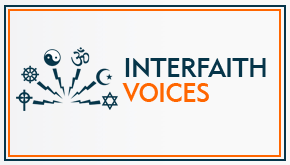This week on Inspired:
The multiplicity of modern paganism
We meet those who call themselves witches, wiccans and druids — and other practitioners of paganism. It’s a diverse group with an array of spiritual practices and beliefs. First we hear from David Dashifen “Dash” Kees, who was raised in a Jewish home and like many modern pagans, has a conversion story. Then Sarah Pike, a professor of comparative religion at California State University Chico, talks about the origins of paganism and the many stereotypes associated with its practitioners.
David Dashifen “Dash” Kees, an initiate at The Firefly House
Sarah Pike, professor of Comparative Religion at California State University Chico
Celebrating Mabon, the autumnal equinox
We meet up with a Washington D.C. area pagan group, the Firefly House, which is trying to counter the stereotypes and stigmas swirling around paganism. We follow them into the woods for their celebration of Mabon, the autumnal equinox, where we hear who they pray to, and how. And they tell us about the the ways they build community, despite the many different ways they practice paganism.
Witchcraft for the masses
Gabriela Herstik, a witch and writer living in Los Angeles, writes the “Ask a Witch” column for NYLON, a lifestyle website that caters to young women. She is also the author of the book “Inner Witch: A Modern Guide to the Ancient Craft.” Herstik says no particular set of beliefs is required to practice witchcraft. While some consider it to be a part of their religion, and may worship certain deities, she thinks of it as a set of spiritual practices — practices she believes can benefit many people.
Gabriela Herstik, author of Inner Witch: A Modern Guide to the Ancient Craft



